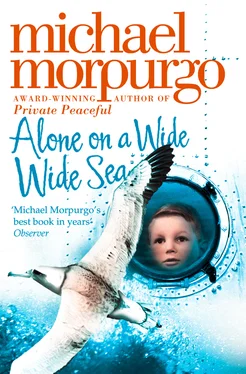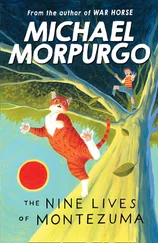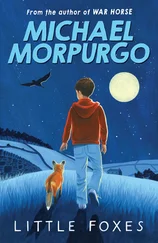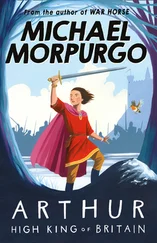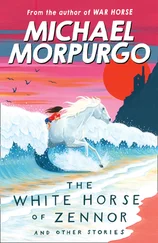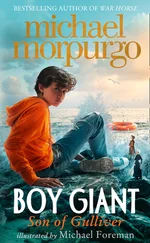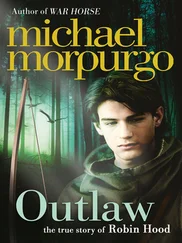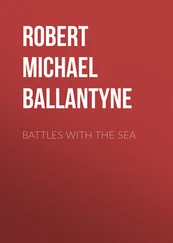Our hands blistered, our feet blistered. Bites and sores festered. None of that mattered to Piggy Bacon. Once one job was done there was always another waiting. We worked hard because he’d stop our food just like that if we didn’t. We worked hard because he’d strap us if we didn’t. We worked hard because if we didn’t he’d cancel our evening playtime and make us work an hour extra at the end of the day. I so longed for that hour off – we all did – and we hated to miss it. That promise of an hour’s playtime was what kept me going when every bone in my body ached with tiredness.
Feeding up the animals was the last task of the day, the only work I really enjoyed. Chickens, cows, pigs, horses – it didn’t matter – I loved to see them come running when they saw us with our sacks of feed. I loved to watch them loving it. But the milking I never liked. My fingers couldn’t cope. They swelled easily and I couldn’t sleep afterwards for the pain. Marty and I – we always tried to be in the same work party – would feed a few by hand if we could, if Piggy Bacon wasn’t around to catch us. The chickens tickled you when they pecked the corn out of your hand, and the horses’ noses felt warm and soft as they snuffled up their feed – you had to watch out in case they snuffled up your fingers as well.
There was one horse in particular Marty and I loved more than all the others. He was huge, a giant of a horse, shining black all over except for one white sock. Big Black Jack he was called, and whenever we were lucky enough to get to feed him, Marty and I made sure he had all the food and water he needed, and then some. I’d crouch there by his bucket, watching him drink deep, listening to his slurping, laughing at his dribbling when he lifted his head out of the bucket. I’d sing London Bridge is Falling Down to him, and he’d like that. He was Piggy Bacon’s plough-horse, and Piggy treated him just as he treated us, worked him to the bone, till his head hung down with exhaustion. Horses, I discovered, when they’re tired or sad, sigh just like people do. Big Black Jack used to do that often. We’d look one another in the eye and I’d know just how he felt and he’d know just how I felt too.
Whatever job we were doing, whenever we were out on the farm, we could be sure Piggy Bacon would turn up sooner or later. He would appear suddenly, out of nowhere. He only ever came for one reason, and that was to pick on someone for something. Each time I hoped and prayed it was someone else he’d pick on. But sooner or later my turn would come around. We either weren’t working fast enough, or hard enough. A water bucket wasn’t full enough, or he’d find a field stone we hadn’t picked up – any excuse would do. He wouldn’t strap us there and then. Instead he’d tell us how many whacks the particular crime merited and then give us all day to think about it. That was the torture of it, the waiting.
The punishment parade would take place in the evening outside the dormitory hut just before supper and before we were locked in for the night. He’d call you out in front of the others and then pronounce sentence on you just like a judge. And you’d stand there, hand outstretched, trembling and tearful. It happened to all of us, and often. No one escaped it. But Marty got it more than most, and you could see that when Piggy Bacon strapped Marty he did it with real venom. There was a good reason for that: Marty’s look.
It was the same look he’d used on that officious man on the dockside the first day we landed in Australia. The thing was that Marty would never be cowed. He would look Piggy Bacon straight in the eye, and that always set Piggy Bacon into one of his terrible rages. The rest of us kept our heads down, just tried to keep out of trouble. Marty fought back with silent defiance. And he didn’t cry out like I did, like the rest of us did, when we were strapped – he wouldn’t give him the satisfaction. He just stood there unflinching, his jaw set, his eyes stoney, no tears, no trembling. And to add insult to injury, he’d say thank you afterwards too, his voice as stony as his stare. I’d like to say we all took heart from that, but we didn’t. We admired him though – everyone did. But he wasn’t the only one who fought back. We soon had another hero to admire, a most unlikely hero too – Wes Snarkey.

Wes Snarkey’s Revenge Wes Snarkey’s Revenge Saints and Sinners Mrs Piggy to Ida “Only One Way Out” “Did We Have the Children Here for This?” “Just Watch Me” “For She’s a Jolly Good Fellow” Wide as the Ocean “Couple of Raggedy Little Scarecrows” Henry’s Horrible Hat Hole I Must Go Down to the Sea Scrambled Eggs and Baked Beans “You’re my Boys, Aren’t You?” Freddie Dodds One January Night An Orphan Just the Same Things Fall Apart The Centre Will Not Hold Oh Lucky Man! Kitty Four Part Two: The Voyage of the Kitty Four What Goes Around, Comes Around Two Send-offs, and an Albatross Jelly Blobbers and Red Hot Chili Peppers And Now the Storm Blast Came Just Staying Alive “Hey Ho Little Fish Don’t Cry, Don’t Cry” Around the Horn, and with Dolphins Too! Dr Marc Topolski “One Small Step for Man” Alone on a Wide Wide Sea “London Bridge is Falling Down” Now you’ve read the book Afterword Acknowledgements Keep Reading About the Author Also by the Author About the Publisher
Neither Marty nor I had ever much liked Wes, and Wes made it quite obvious he didn’t much like us either. I could never forget how he and his cronies had tormented me almost every night on the ship, and I’m sure he could not forget how Marty had come to my defence and humiliated him on the deck that day. That must still have rankled with him. So the result was that we hardly ever spoke. In fact he hardly ever spoke to anyone during those first months at Cooper’s Station. In the dormitory, at the line of wash buckets on the verandah, eating at the long trestle table, out at work on the farm, he kept himself to himself. Even at evening playtime when we’d all be kicking a football around, he’d sit there on his own, gazing out at nothing. Of all of us Wes Snarkey was the only loner. But then one day I found out that he wasn’t really a loner at all. He had a friend – a best friend.
Time and again Piggy Bacon had strapped him for wandering away from his work. No one knew where he went and he didn’t tell anyone. One moment he’d be there digging a ditch alongside you, the next he’d be gone. Strapping Wes didn’t stop him from sneaking off, so I knew that whatever he was doing, wherever he was going, must have been really important to him. We were mucking out the pigs one day when I noticed he’d gone off again. I made quite sure Piggy Bacon wasn’t about, and went looking for him. I found him by Big Black Jack’s paddock. I crouched down behind the trunk of a fallen gum tree and watched him. He was standing by the fence, feeding Big Black Jack with some bread crusts, and he was talking to him as if he was a real person, not a horse at all. I was close enough to see everything, and to hear everything too.
Wes was telling him about a horse he’d known in England, in Leeds, a milkman’s horse, a piebald mare she was, and how every morning he’d sit on the wall of the orphanage in the early morning and wait for her to come, how he’d save his bread crusts to feed her, how one day the milkman had let him sit on her, and they’d gone off down the street, how it was the best day of his life. “Will you let me ride you one day, Jack?” he whispered, smoothing his neck. “Would you? I could ride you out of here and we’d never come back.”
Читать дальше
